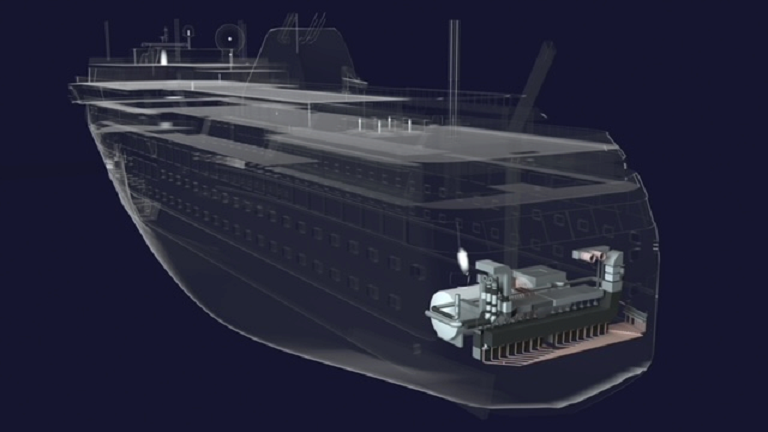DNV has awarded the Norwegian technology provider HAV Group ASA preliminary approval for its hydrogen-based energy system.

The system uses liquefied hydrogen storage and fuel cells and was created as part of the FreeCO2ast project, which is currently developing a high-capacity hydrogen energy system that can be retrofitted onboard two coastal cruise vessels owned by the Norwegian operator Havila Kystruten.
The preliminary approval through DNV means that HAV Group ASA can confidently enter the final design stage and is one step closer to commercializing its hydrogen system.
Green hydrogen could play an important role in the decarbonization of shipping – both in terms of its potential as an enabler for synthetic fuels, as well as its direct use as ship fuel. However, hydrogen’s unique properties make it a complex fuel to work with, and the lack of prescriptive regulations means that companies wishing to launch hydrogen systems need to follow the IMO guidelines on alternative design (MSC.1/Circ.1455). As with all emerging fuels, the maintenance of high safety levels when using hydrogen is paramount.
“The Alternative design approval process is used for novel ship designs that cannot be approved with the current prescriptive regulations and the final approval is granted by the Flag State. We at DNV, were very pleased that HAV Group ASA selected us as their chosen partner to carry out a third-party verification review as part of the Alternative Design approval process,” explained Ivar Håberg, Director of Approval, Ship Classification, DNV Maritime.
He added: “Our assessments have shown that the preliminary design complied with the goal and functional requirements in the IGF Code (IMO International Code of Safety for Ships using Gases or other Low-flashpoint Fuels). This means that HAV Group ASA has successfully demonstrated that their concept fulfils the initial criteria for safe and reliable operations with hydrogen as ship fuel. It’s been a pleasure to work with HAV Group ASA, and we look forward to seeing the final design take shape.”
Gunnar Larsen, CEO of HAV Group ASA, said: “Getting a hydrogen energy system off the ground is a complex and very challenging undertaking, and we are very proud to have come this far. Getting to this stage has been the result of four years of cooperation with our internal and external partners in the FreeCo2ast project and excellent support from experts at DNV. Their guidance has been essential in successfully navigating the Alternative Design process.”
In a separate project, DNV advisory experts supported HAV Group ASA with Hazard Identification (HAZID study) and Quantitative Risk Analysis (QRA) for every aspect of their hydrogen fuel system, including bunkering, storage tanks, the fuel supply system and other auxiliary systems that are connected to the hydrogen system on board the vessels.